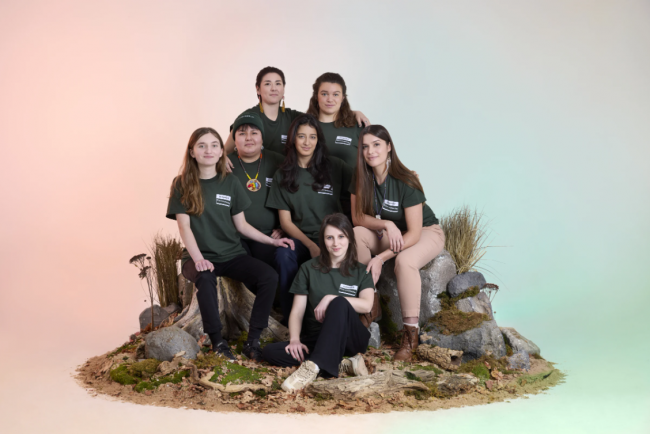Articles Menu

May 2, 2025
A climate lawsuit brought by seven young activists will proceed in Ontario after Canada’s Supreme Court declined to hear the Ford government’s appeal.
The decision allows the case to proceed in Ontario’s Superior Court for a full hearing that could redefine governments’ legal obligations to combat climate change under the Charter of Rights and Freedoms.
The lawsuit, filed in 2019, challenges the Ford government's rollback of its 2030 emissions target — from a 37 per cent reduction below 1990 levels to just 30 per cent below 2005 levels. This weaker policy permits an estimated 200 million additional tonnes of carbon pollution by 2030 — equivalent to the annual emissions of 47 million gas-powered cars.
Fraser Thomson, an Ecojustic lawyer representing the youth, called the ruling “a landmark day in the fight for climate justice.”
He said the government rollback violates Charter rights by exposing young people to escalating risks from extreme weather, long-term health impacts and environmental injustice. The plaintiffs are asking the court to order Ontario to adopt science-based targets aligned with Canada’s international commitments under the Paris Agreement.
“We are in a climate emergency that threatens our homes, health, way of life and our futures. Governments, like Ontario, have repeatedly shown that they are unwilling to take this threat seriously — their failure puts us all at risk,” Thomson said. "That is why our seven youth clients have turned to the court. When governments violate Charter protected rights on such a massive scale, it’s not only the role of courts to hold them accountable — it’s their duty.”
The case was initially dismissed in 2023 but revived last year by Ontario’s Court of Appeal, which ruled the constitutional claims deserved a full hearing.
The decision allows the case to proceed in Ontario’s Superior Court for a full hearing that could redefine governments’ legal obligations to combat climate change under the Charter of Rights and Freedoms. Blue Sky
Youth applicant Sophia Mathur, now 18, said she’s hopeful the case will lead to a decisive outcome.
“I am fighting for my future, and for the future of every young person in Canada,” Mathur said. “I was only 12 years old when we took Ontario to court for the first time, but I was already witnessing the ways climate change was impacting my community, our way of life and my dreams for the future. We are ready to be back in court and feel hopeful that we will get the fulsome resolution and decisive victory we have spent the last six years fighting for.”
Thomson noted that this is the first time a Charter challenge over a government’s climate target has reached the full trial stage. He said the outcome could clarify whether Canadian governments have a constitutional obligation to protect citizens — especially youth — from the impacts of climate change.
A spokesperson for the Ontario Attorney General said the Supreme Court’s decision does not mean the province’s climate plan has been ruled unconstitutional, adding it would be inappropriate to comment further on a matter before the court.
Ontario Greens Leader Mike Schreiner said the Supreme Court’s decision underscores why young people are taking action.
“I absolutely understand why young people are furious that the Ford government has failed to address the climate crisis, and is, in fact, making it worse,” Schreiner said.
He said the government is falling short on climate preparedness, citing the high costs imposed on the Greater Toronto Area by last summer’s floods and recent storms that left some Ontarians without power for more than a week. Schreiner also praised young people for standing up for a livable future and pushing for greater accountability on the climate crisis.
The case is part of a growing global trend in climate litigation. According to the Sabin Center for Climate Change Law at Columbia University, more than 2,600 climate-related lawsuits have been filed worldwide — most since the 2015 Paris Agreement.
With file from John Woodside
[Top: Photo courtesy of Tilly Nelson / Ecojustice.]